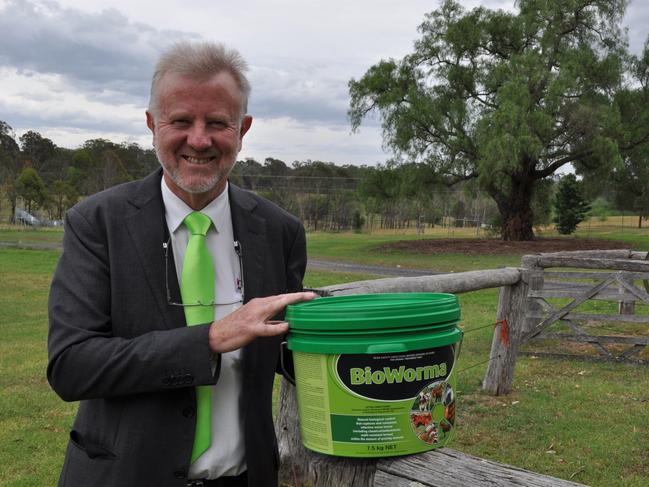A biological worm control has been developed for treating livestock
THE world’s first biological worm control for livestock has been developed in Australia.

THE world’s first biological worm control for livestock has been developed in Australia.
And while it has taken almost 20 years of research and development, it puts Australia at the forefront of scientific advancement in parasitology.
BioWorma uses a natural strain of fungus, Duddington flagrans, which seeks out and traps the larvae of parasites such as barber’s pole worms, brown stomach worms and black scour worms.
Suitable for sheep, goats, cattle and horses, BioWorma is fed to the animals, the spores resist digestion and pass through into the manure. They then germinate and form trapping organs that capture, paralyse and consume worm larvae.
The spores have no effect within the host animal, are safe and non-toxic.
Developer and International Animal Health Products director Chris Lawlor said BioWorma initially came about due to work being done by the CSIRO.
But after they stopped their involvement with the project in 2004, Mr Lawlor continued.
“I didn’t want to see the science developed overseas and then see Australian farmers having to buy it back,” Mr Lawlor said.
Mr Lawlor said about 1990 a report came out about antibiotic residues.
“So we knew from that point they (antibiotics) were a big issue but of equal concern was chemical resistance.”
He said IAHP’s focus has been in microbes and “trying to find alternative ways of doing things” as the “market is moving towards alternatives to chemicals”.
“There is widespread chemical resistance and products on the market with up to three actives, which are creating more resistance problems,” Mr Lawlor said.
A Meat and Livestock Australia study in 2015 estimated annual losses caused by internal parasites were $436 million for sheep, $93.6 million for cattle and $2.54 million for goats.
BioWorma trials show it cuts round worm larvae on pasture much more than a chemical wormer in the animal.
The number of worms can be reduced on average by 84 per cent in horses, 81 per cent in cattle, 86 per cent in goats and 68 per cent in sheep.
BioWorma has been approved for sale in Australia, New Zealand and the US, while approval for Europe was being sought.


